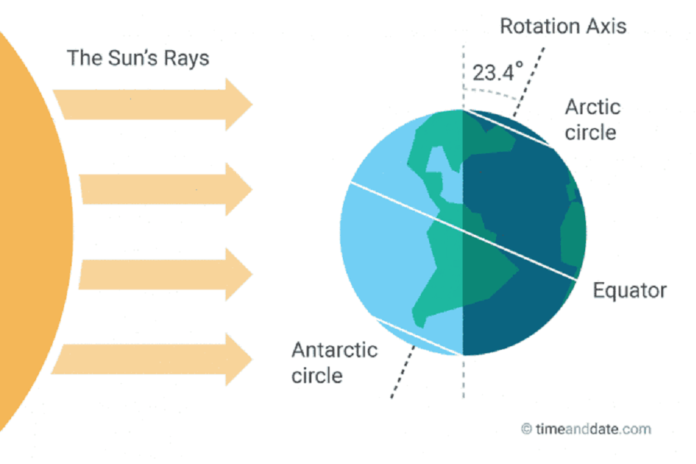IN Vancouver, we will welcome the winter solstice on Tuesday, December 21 at 7:59 a.m. (PST), according to timeanddate.com.
Tuesday will be the shortest day of the year. This means days get longer during winter—very slowly at first, but at ever-larger daily intervals as the March equinox approaches, heralding the start of spring, explains the website.
While the earth rotates about the sun, it also spins on its axis, which is tilted some 23.5 degrees towards the plane of its rotation. Because of this tilt, the Northern Hemisphere, where we are based, receives less sunlight, creating winter.
On the winter solstice, the sun appears at its lowest point in the sky and its noontime elevation appears to be the same for several days before and after the solstice. That is the origin of the word “solstice” – Latin “solstitium”: “sol” or sun and “-stitium” of a stoppage.
As the National Geographic reports, people have celebrated the day around the world and throughout history. In fact, “ancient Rome had a major festival in honor of Saturn, their god of farming, on the winter solstice. The solstice occurred around December 25 on the Roman calendar. About 1,600 years ago, Pope Julius I of the Catholic Church decided that Christmas should be celebrated on December 25, so that a Christian holiday would replace the ancient Roman one.”
Interestingly, according to timeanddate.com, the winter solstice doesn’t always occur on December 21. Sometimes it comes on December 22, which will happen again in 2015.
December 21 or 22 solstices happen more often than December 20 and 23 solstices. The last December 23 solstice was in 1903 and will not happen again until 2303. A December 20 solstice has occurred very rarely, with the next one in the year 2080.
So why do the dates vary?
The website explains: “The Gregorian calendar, which is used in most western countries, has 365 days in a common year and 366 days in a leap year. However, the tropical year, which is the length of time the sun takes to return to the same position in the seasons cycle (as seen from Earth), is different to the calendar year. The tropical year is approximately 365.242199 days but varies from year to year because of the influence of other planets. The exact orbital and daily rotational motion of the Earth, such as the “wobble” in the Earth’s axis (precession), also contributes to the changing solstice dates.”
Anyway, who cares as long as the days keep getting longer now!












